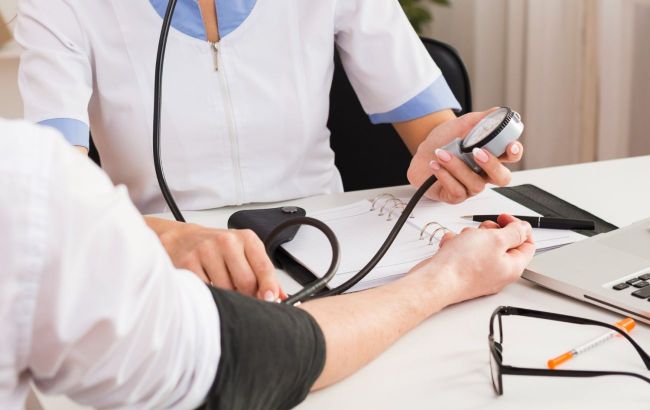Cardiologist explains what healthy people should do once a month
 How often to measure blood pressure (photo: Freepik)
How often to measure blood pressure (photo: Freepik)
Blood pressure is an unstable indicator that can change even with mild physical activity, conversations, drinking tea or coffee, and other factors. Therefore, it is necessary to check it periodically, states Ukrainian cardiologist Natalia Ivaniuk.
How often to measure blood pressure
According to the doctor, if you have cardiovascular disease and take pills to stabilize your blood pressure, you should measure your blood pressure twice a day - in the morning and in the evening.
If you are a healthy person, then as a preventive measure, you can measure it once a month to ensure that your blood pressure is normal.
During measurement, it's important to sit calmly, avoiding movement and distractions such as television, phone, loud music, and other factors. People who have problems with blood pressure should take measurements three times with an interval of 2-3 minutes, and take the average value as a basis.
For reliable results, it is necessary to take the measurement in a calm state, lean against the back of a chair, and put your hand on the surface ensuring that the cuff is at heart level.
You do not need to measure your blood pressure 5-7 times a day. This only causes excessive nervousness, which can provoke pressure surges.
Normal blood pressure in adults
The indicator is measured in millimeters of mercury using a special device - a blood pressure monitor. This can be done by a general practitioner during an appointment or by a patient at home.
The normal ranges for blood pressure are as follows:
- 100-120/60-80 mmHg - Optimal
- 120-129/80-84 mmHg - Normal
- 130-139/85-89 mmHg - Elevated
- Low blood pressure (hypotension) - readings less than 110/60 mmHg
- High blood pressure (hypertension) - readings of 140/90 mmHg or higher
Both conditions can lead to serious consequences, so they require medical attention.
This material is for informational purposes only and should not be used for medical diagnosis or self-treatment. Our goal is to provide readers with accurate information about symptoms, causes, and methods of detecting diseases. RBС-Ukraine is not responsible for any diagnoses that readers may make based on materials from the resource. We do not recommend self-treatment and advise consulting a doctor in case of any health concerns.

